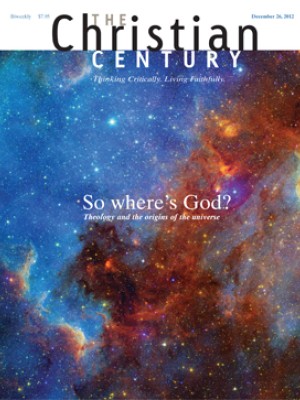Bishop Ting dies at 97; led Chinese churches
Bishop K. H. Ting, the longtime leader of China’s official Protestant Church, died in Nanjing on November 22 at age 97. Ting drew high praise from the World Council of Churches and the evangelical Fuller Theological Seminary, among others.
Ting had his admirers and detractors internationally for maintaining government ties for the “registered” churches in the communist-run nation. Many conservative Protestant churches and ministries in the West supported instead the so-called house churches in China whose members suffered more persecution.
The Shanghai-born Ting had connections with the WCC in its formative stages, serving as mission secretary for a student mission group in Canada. He earned an M.A. in 1948 at Union Theological Seminary in New York. He later joined the staff of the World Student Christian Federation in Geneva and was ordained an Anglican bishop about the time he returned to China in the mid-1950s.
Read our latest issue or browse back issues.
There he held several top leadership posts—principal of Nanjing Union Theological Seminary, chairman of the official churches’ Three-Self Patriotic Movement (self-governing, self-supporting and self-propagating) and president of the China Christian Council.
With the creation of the CCC, said WCC general secretary Olav Fyske Tveit, Ting “contributed immensely to raise the profile of the Chinese church.” The bishop made it possible for the “church in China [to reenter] into WCC fellowship after four decades of absence in the global ecumenical movement,” said Tveit.
“Bishop Ting played an important role in ensuring that Chinese Christianity continues to survive and grow even under the communist regime,” added Tveit. Ting also served as vice-chairman of the Chinese People’s Political Consultative Conference (1989–2008) and was a member of the National People’s Congress, the Chinese legislature.
The “visionary” roles played by Ting were recognized by two presidents of the California-based Fuller Theological Seminary, the largest seminary in North America. Outgoing Fuller president Richard Mouw said he gave thanks to God for the bishop’s personal friendship “and his service to Christ’s kingdom.”
When Mouw became seminary president in 1993, Ting asked if he could attend the installation ceremony. Mouw invited him, but for weeks before the event he came under intense pressure “from critics of the Three-Self Churches in China to rescind the invitation. We stuck with the decision and the bishop participated.” Thereafter, Ting greeted many Fuller delegations on visits to China.
The Fuller-Ting connections, however, began in 1984 when then-president David Allen Hubbard took a group of Fuller officials to learn about the condition of churches in China. “This was a creative and courageous gesture,” Mouw said, noting the general distrust among evangelicals of the government-sanctioned churches. “Dr. Hubbard deliberately chose to break ranks by offering an evangelical hand of friendship.”
Anglicans generally saw Ting in a favorable light—“larger than life in the history of contemporary Christianity in Asia,” said Winfred B. Vergara, the Episcopal Church’s missioner for Asiamerica Ministries, according to the Episcopal News Service.





